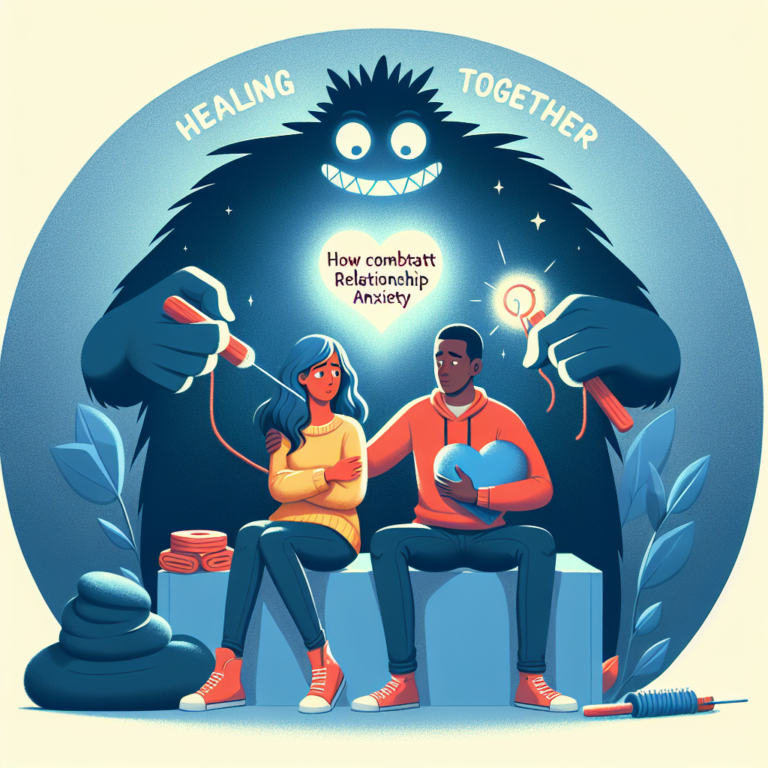
Introduction
Imagine a life where your emotional state hinges entirely on another person’s actions or feelings. This scenario is not just a plot twist from a drama series; it’s a profound reality for many grappling with emotional dependency. Understanding The Impact of Emotional Dependency on Mental Health: What You Need to Know is crucial, not just for those experiencing it, but also for their loved ones and mental health professionals. Emotional dependency can shape daily lives, relationships, and overall well-being in profound ways, leading to anxiety, depression, and a host of other mental health issues.
In this article, we’ll delve into the intricacies of emotional dependency, its psychological roots, personal impacts, and effective strategies for overcoming its challenges. Ready for a deep dive? Let’s explore.
Understanding Emotional Dependency
What is Emotional Dependency?
Emotional dependency refers to an excessive reliance on others for emotional support and affirmation. Individuals with high emotional dependency often feel incomplete without the presence or approval of someone else. This can lead to unhealthy attachments, diminished self-esteem, and various mental health struggles.
The Psychological Underpinnings
Many factors contribute to emotional dependency. From early childhood experiences to ingrained beliefs and social conditioning, these elements shape our emotional landscapes.
Attachment Theory: Developed by John Bowlby and Mary Ainsworth, this theory highlights how early relationships with caregivers influence later emotional bonds. Individuals who experienced inconsistent care in childhood may develop heightened attachment needs.
- Fear of Abandonment: Those who fear losing a loved one may cling more tightly, amplifying their emotional dependency. This can lead to behaviors that try to secure their partner’s attention and love.
The Impact on Mental Health
Anxiety and Depression
Among the most significant effects of emotional dependency is its potential to increase anxiety and depression. When one’s emotional state is unstable, the resultant distress can be overwhelming.
Case Study: Sarah’s Story
Sarah, a 29-year-old graphic designer, found her happiness entirely reliant on her boyfriend’s approval. When they fought, not only did her mood plummet, but she also experienced panic attacks. After seeking help, Sarah learned to build her self-worth independent of her partner, significantly reducing her anxiety levels.
- Relevance: Sarah’s case highlights how emotional dependency can lead to mental health crises and the importance of developing self-identity.
Relationship Strain
Emotional dependency can jeopardize relationships. Partners may feel suffocated, leading to conflicts and eventual separation. When one partner feels like the emotional crutch for the other, it creates an unhealthy dynamic, often leading to resentment on both ends.
Limiting Personal Growth
Individuals trapped in emotional dependency may neglect personal interests and growth. Their entire focus shifts to maintaining the relationship, stunting personal ambitions and causing dissatisfaction.
Case Study: Mark’s Transformation
Mark, a 35-year-old teacher, always prioritized his partner’s needs above his own. This eventually led him to abandon his hobbies and interests. With support from a therapist, Mark learned to reignite his passions, resulting in a more balanced life.
- Relevance: Mark’s transformation underscores the necessity of nurturing personal identities, even in close relationships.
Strategies to Overcome Emotional Dependency
Building Self-Esteem
Improving one’s self-esteem is foundational in breaking free from emotional dependency. Engage in activities that foster self-worth, such as:
- Setting and achieving goals: Whether small or large, accomplishing tasks can boost confidence.
- Positive affirmations: Regularly reminding oneself of personal strengths can shift focus from dependency to self-acceptance.
Developing Healthy Boundaries
Setting boundaries is vital for emotional health. When individuals communicate their needs and limits clearly, it reduces feelings of obligation or guilt that fuel dependency.
Seeking Professional Help
Therapy can be instrumental in addressing emotional dependency. Counseling provides tools to:
- Understand emotional triggers.
- Build coping strategies.
- Foster independence in emotional well-being.
Engaging in Mindfulness Practices
Mindfulness techniques such as meditation or journaling help individuals reconnect with themselves. This self-reflection is crucial for those struggling with emotional dependency, as it cultivates an appreciation for one’s own feelings and experiences.
The Long-Term Effects of Emotional Dependency
Chronic Stress
Long-term emotional dependency can lead to chronic stress, which is linked to various health issues, including heart disease and weakened immune responses.
Social Isolation
As dependency deepens, individuals may withdraw from other relationships, resulting in isolated lives that further amplify dependence on their primary attachment.
Opportunities for Growth
Conversely, overcoming emotional dependency can lead to immense personal growth. Individuals often emerge with:
- Greater emotional resilience.
- Improved social skills.
- Deeper, more balanced relationships.
Table: Emotional Dependency vs. Healthy Attachment
| Aspect | Emotional Dependency | Healthy Attachment |
|---|---|---|
| Emotional Stability | Highly dependent on others | Self-sufficient with emotional availability |
| Self-Worth | Intrinsically linked to another’s approval | Independent and self-affirming |
| Boundaries | Often blurred or absent | Clear and respectful |
| Conflict Resolution | Typically anxious and reactive | Open and constructive dialogue |
| Personal Growth | Limited by reliance on partner’s needs | Encouraged through mutual support |
Conclusion
Navigating The Impact of Emotional Dependency on Mental Health: What You Need to Know can feel daunting, yet it is ultimately a journey toward greater self-awareness and emotional resilience. By understanding the underlying factors contributing to emotional dependency and implementing effective strategies to overcome it, individuals can reclaim their identities and enhance their mental health.
Remember, while it’s natural to depend on others for support, balancing these relationships with a healthy sense of self is vital. Embrace the journey, and don’t hesitate to seek help—it’s a significant step towards a healthier, happier life.
FAQs
1. What are the signs of emotional dependency?
Signs include constantly seeking validation from others, feeling incomplete without a partner, and neglecting personal interests for the sake of the relationship.
2. Can emotional dependency be fixed?
Yes, with awareness, therapy, and a commitment to personal growth, individuals can overcome emotional dependency and foster healthier relationships.
3. How does emotional dependency affect friendships?
It can strain friendships as overly reliant individuals may prioritize their own emotional needs over the friendship, leading to resentment and withdrawal from the relationship.
4. Is emotional dependency a mental illness?
While it isn’t classified as a mental illness, it often coexists with anxiety and depression and can exacerbate those conditions.
5. What can I do if I’m in a relationship with a person who exhibits emotional dependency?
Encourage open communication, set clear boundaries, and suggest professional help if their dependency significantly impacts the relationship.
Informed understanding of The Impact of Emotional Dependency on Mental Health: What You Need to Know brings clarity and empowerment—an essential first step toward healing and growth. Take charge of your emotional landscape today!















